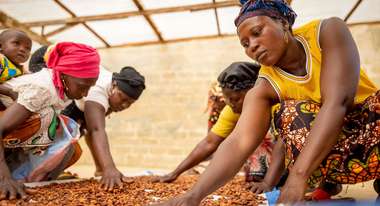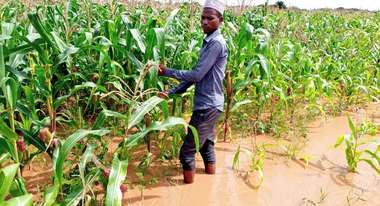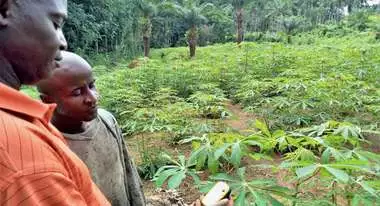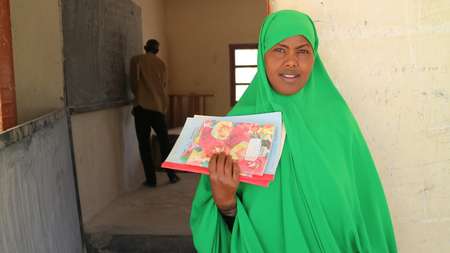
Fighting Droughts with Sustainable Agriculture
Welthungerhilfe is helping people in Somaliland confront the challenges of climate change and social problems.
Somaliland presents itself as a stronghold of stability and democracy. Judging by the level of violence, it is significantly safer than other parts of Somalia. It has also held regular elections with peaceful transfers of power since declaring independence in 1991. Despite a lack of international recognition, Somaliland was, until recently, regarded as a success story known for its focus on reconciliation and maintaining a deft balance of power between the various clans. However, the postponement of the 2015 elections and the unusually harsh reaction to the ensuring protests raise suspicions that a power-hungry political elite is forming here as well.
Over half of Somaliland’s population lives in poverty; according to government data from 2011, more than 60% of people live beneath the poverty line. The majority of its approximately four million citizens live as nomadic cattle herders, but this way of life is being increasingly supplemented by agriculture.
History of Somaliland
- In 1960, upon achieving independence, the former colonial territory unites with its southern neighbour, Italian Somaliland, to form Somalia.
- In 1991, after the fall of dictator Siad Barre, Somaliland leaves the union and declares itself a republic.
- After 1991, the rest of Somalia, with no stable government or with transitional governments in exile, fragments due to the power struggle between clans, warlords and the radical Islamist terror group Al-Shabaab. At the same time, Somaliland holds regular democratic elections with peaceful power transitions.
More Information
Drought Keeps Country in Suspense
The effects of climate change are particularly severe for people who earn their daily bread as herders or farmers: In the past decade, there has been little rain. The soil and the forests are in large part so damaged that they can no longer be used as farmland or pasture. The majority of the rural population also has no clean water. In the spring of 2017, hundreds of thousands of people and their livestock were suffering from shortages of water and food. Because many people can no longer make a living from animal husbandry or agriculture, the government has appealed to the international community for help.
Help for Smallholders and Women
Welthungerhilfe is already supporting people. The organisation has been active in the northern province of Awadal, which borders Djibouti, for 15 years. It helps smallholders to react to climate change with adapted cultivation methods and seeds.
Another major social problem in Somaliland is the deeply-rooted structural discrimination against women. The female segment of society has little access to education, and many women and girls can neither read nor write, leaving them disadvantaged throughout their lives. In order to combat this discrimination on a structural level, all Welthungerhilfe projects support the informal education of women and girls.
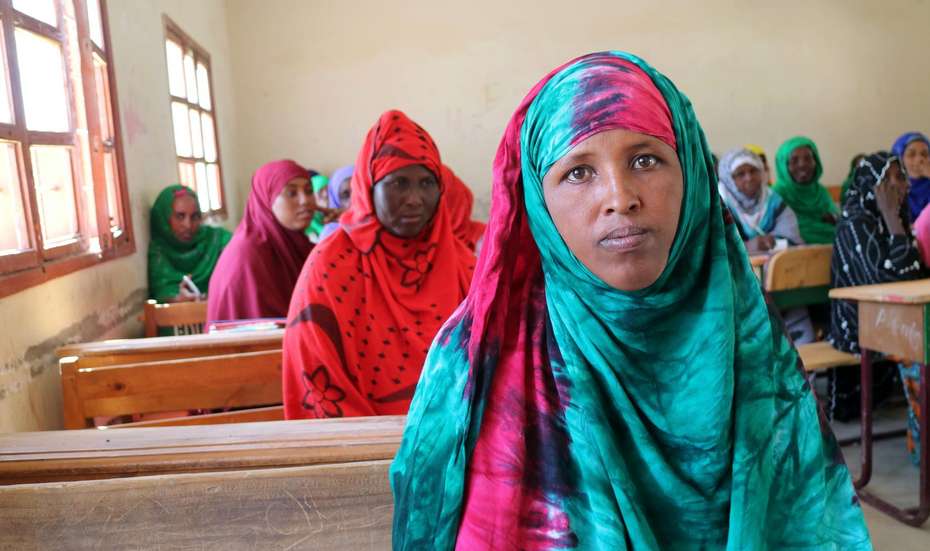
How Welthungerhilfe Supports People in Somalia
- In training sessions, smallholders are familiarised with modern cultivation methods that protect the soil while still achieving higher yields. With the aid of natural fertilisers and ecological plant protection, the environment is being protected in the long term.
- Smallholders can react to climate change with adapted cultivation methods and seeds. For example, they are provided with sorghum seeds. Unlike wheat, for example, this grain grows even in extremely dry conditions.
- Welthungerhilfe is promoting soil and water conservation technology. This guarantees farmers a harvest even during dry spells.
- By offering educational opportunities, Welthungerhilfe helps to strengthen women, fighting discrimination on a structural level.




